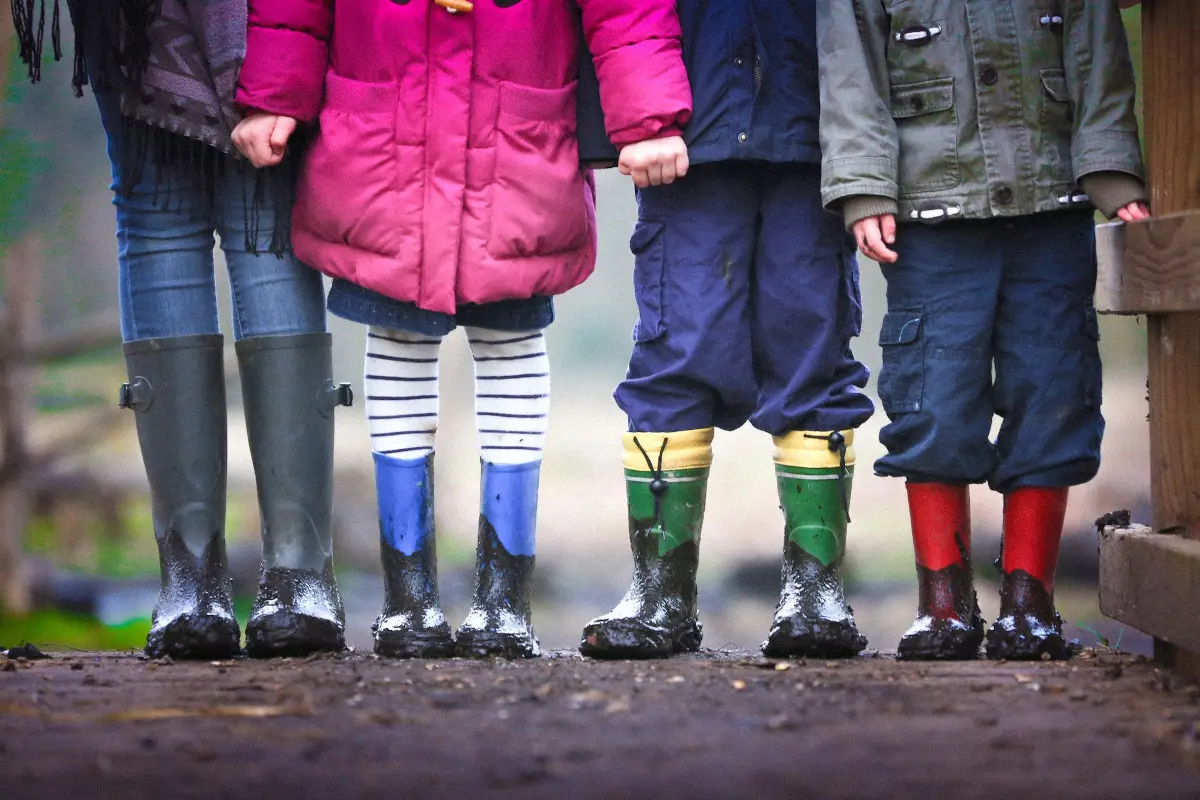Camping with kids can be a fantastic way to bond as a family and create lasting memories. Here are 15 activities to do with kids on a camping trip. These activities provide more opportunities for kids to engage with nature, develop new skills, and have fun while camping. Each activity offers unique benefits, from artistic expression to mindfulness and environmental stewardship.
To know more about how to tent camp with little children please read my article on “How to Tent Camp with Little Children”
- Nature Scavenger Hunt:
- Preparation: Create a scavenger hunt list tailored to the specific location. Include items like pinecones, certain types of leaves, animal tracks, or even natural landmarks.
- Learning Opportunity: This activity encourages kids to observe and connect with their natural surroundings. They learn about local flora and fauna while honing their observation skills.
- Campfire Stories:
- Setting the Mood: Dim the campfire lights and gather around. Provide flashlights for added atmosphere.
- Creativity: Encourage kids to develop their own stories or adapt existing ones. This activity fosters creativity, public speaking skills, and imagination.
- Cooking Over the Fire:
- Teaching Moments: Show kids how to build and maintain a safe campfire. Teach them about fire safety and the basics of outdoor cooking.
- Independence: Involving kids in cooking fosters self-reliance and responsibility. They can also learn about food preparation and hygiene.
- Hiking Adventures:
- Trail Planning: Choose trails that match your kids’ abilities and interests. Offer information about the local ecosystem to make the hike educational.
- Nature Exploration: Encourage kids to use their senses to explore the natural world around them. Ask open-ended questions about what they see, hear, and smell.
- Star Gazing:
- Stellar Learning: Use stargazing apps or books to help identify constellations. Explain the myths and stories associated with them.
- Scientific Inquiry: Discuss the science behind stars, planets, and space. Answer questions and inspire curiosity about the universe.
- Nature Art:
- Creative Expression: Nature art allows kids to express themselves through creativity. It’s an opportunity to appreciate and connect with nature differently.
- Environmental Awareness: Discuss the importance of respecting and preserving the environment while creating art.
- Fishing:
- Basic Skills: Teach kids how to set up a fishing rod, bait a hook, and cast a line. Emphasize catch-and-release if you’re not planning to cook the fish.
- Ecological Awareness: Discuss the role of fishing in the ecosystem and the importance of responsible fishing practices.
- Campfire Games:
- Bonding Time: Campfire games promote family bonding and conversation. They’re an excellent way to relax after a day of outdoor activities.
- Mental Stimulation: These games stimulate critical thinking and improve vocabulary, making them both fun and educational.
- Nature Journaling:
- Observation Skills: Encourage kids to closely observe plants, animals, and natural phenomena. Journaling helps them pay attention to details.
- Reflection: Ask kids to reflect on their experiences and jot down their feelings and questions. This promotes self-awareness and emotional expression.
- Wildlife Watching:
- Patience and Observation: Wildlife watching requires patience and quiet. It teaches kids to be still and observant.
- Environmental Stewardship: Use this opportunity to discuss the importance of wildlife conservation and respecting animals’ habitats.
- Nature Crafts:
- Supplies: Bring along basic crafting supplies like colored pencils, markers, paper, and glue.
- Craft Ideas: Encourage kids to create nature-inspired crafts such as leaf or bark rubbings, pinecone bird feeders, or painted rocks. This allows them to transform their natural finds into art and keepsakes.
- Geocaching:
- Introduction: Geocaching is a modern treasure hunt using GPS coordinates to find hidden containers (geocaches).
- Engaging Technology: Let kids use a GPS or smartphone app to navigate and find geocaches hidden within your camping area. Geocaching combines technology, navigation skills, and outdoor exploration.
- Bird Watching:
- Binoculars and Field Guides: Equip your kids with binoculars and bird identification books.
- Learning Opportunity: Encourage them to identify and observe local bird species. Discuss bird behaviors, migrations, and the importance of bird conservation.
- Leave No Trace Activity:
- Teaching Responsibility: Teach kids about the Leave No Trace principles, which emphasize minimizing our environmental impact.
- Hands-On Practice: Challenge kids to follow these principles by cleaning their campsite thoroughly, packing out all trash, and respecting nature.
- Nature Yoga and Meditation:
- Mindfulness: Lead a nature-inspired yoga or meditation session. Find a quiet spot and guide kids through simple stretches or mindfulness exercises.
- Relaxation: This activity promotes relaxation, mindfulness, and a deeper connection with nature. It’s a great way to wind down after an active day outdoors.
Incorporating these activities into your camping trip makes it more enjoyable and provides valuable learning experiences for kids. It encourages them to appreciate and connect with the natural world while developing various skills and knowledge.


Leave a Reply
You must be logged in to post a comment.